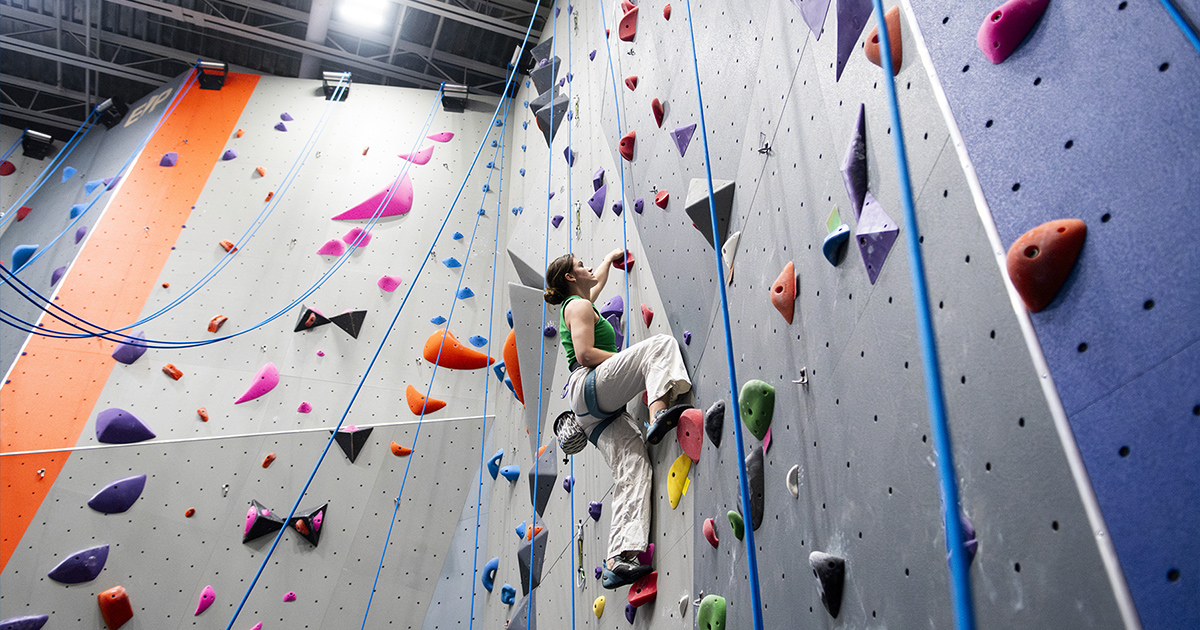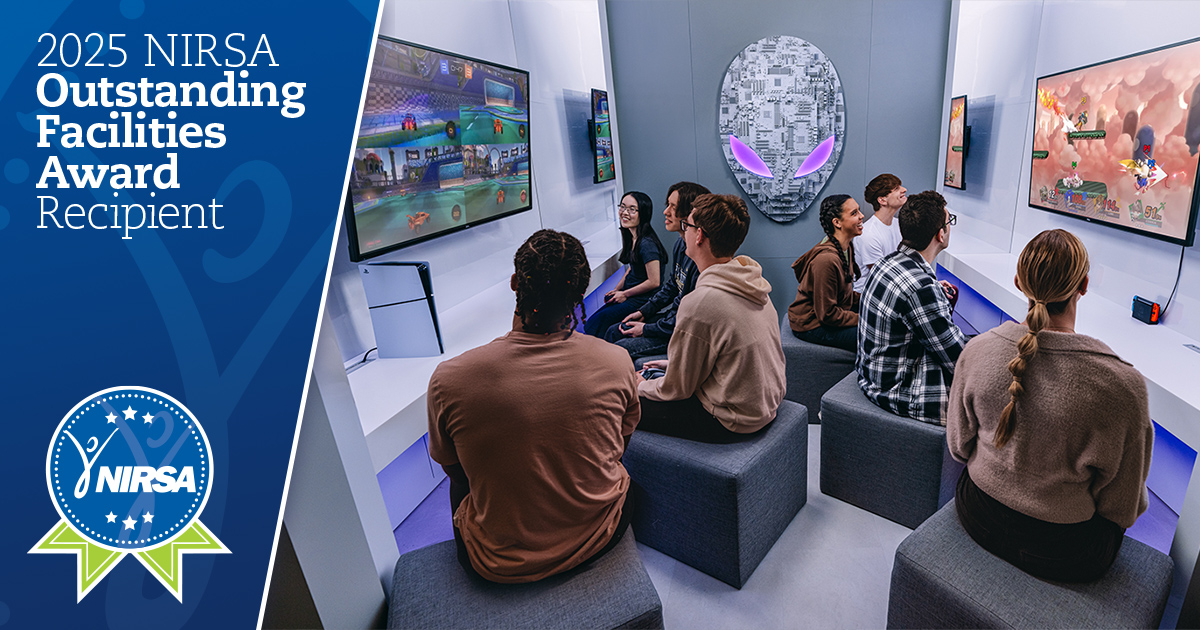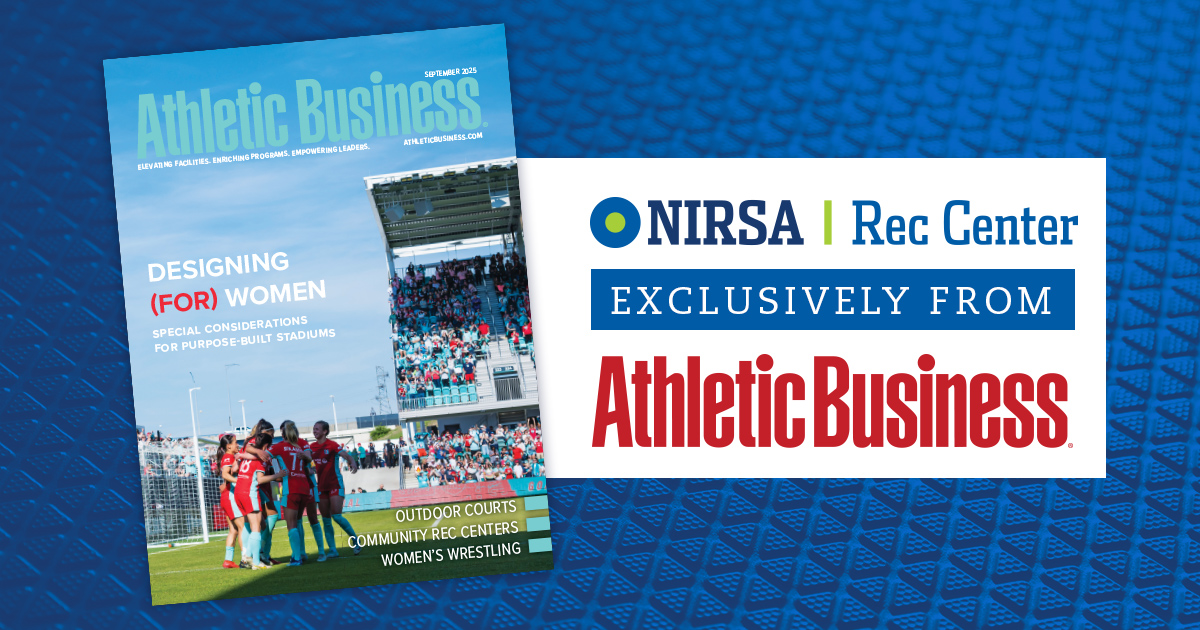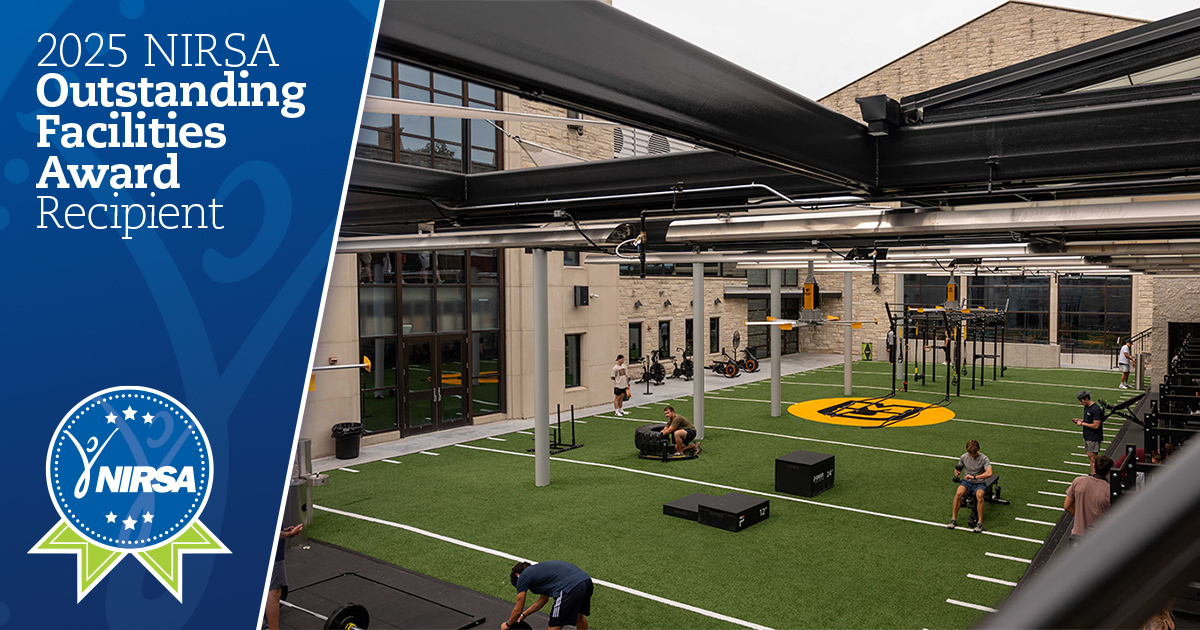By Nazifa Islam
Jeff Ryder began working in collegiate recreation his freshman year at Rutgers University where his very first job as an undergraduate student was as an intramural floor hockey official. “I love hockey,” he says, “so I thought I would give it a try.” Fortunately, he ended up really enjoying his first season of officiating; it gave him the chance to “connect to a sport
The push to explore the field “as a potential career opportunity,” says Jeff, came from “seeing the impact the program made on students and campus life”—he firmly believes that recreation programs “offer students the opportunity to gain valuable experiential education.” He was also heavily influenced by the “positive relationships [he] had with the professional staff.” However, Jeff didn’t truly decide to dedicate himself to campus recreation until he’d already moved on from Rutgers. As a graduate assistant at Minnesota State University, Mankato, Jeff attended his first NIRSA regional conference in Duluth and his first extramural competitions. He credits staff at Minnesota State, Mankato—Ryan Stevens, Program Coordinator, and Todd Pfingsten, Director of Campus Recreation—with exposing him to “NIRSA for the vast and great organization it is.” While “my undergraduate experience opened the door to recreation, my graduate experience opened the door to the wide spectrum of NIRSA,” explains Jeff.
And NIRSA has played quite the significant role in shaping his career. Through NIRSA, Jeff says, “I found a community that shared similar values that I wanted to become a part of.” For him, “NIRSA means opportunity, community, and innovation. I stay involved because I enjoy being a part of something uniquely special.” When asked to sum up his once-budding interest in campus recreation, Jeff says, “My undergraduate experience helped me find a passion and a potential career. My graduate assistantship helped me really understand what NIRSA is and what it does, confirming my desire to be a part of this industry.”
Jeff’s current professional position is as Senior Assistant Director of Campus Recreation – Recreational and Competitive Sports with Centers, LLC at the University of New Haven where he has been onsite for over five years. Besides his graduate assistantship at Minnesota State University, Mankato, he also spent a year working at Indiana University South Bend as the Intramural and Club Sport Coordinator. At New Haven, he’s “been able to continuously grow diverse programs, serving the campus community. Centers, LLC has provided great growth, encouragement, and the confidence to get more involved.”
Jeff received his scholarship from the NIRSA Foundation in 2008 while a second-year graduate student. He says that “winning a scholarship was exciting and encouraging,” and he credits it with allowing him “to further invest in [his] future.” He was able to attend the 2008 NIRSA Annual Conference in Austin, Texas thanks to the scholarship, and says the conference was a “very surreal” experience” because “I was involved in much more than I had been in previous conferences. Mostly, what I remember is networking with professional staff and students from different regions and listening to different stories on how they got to where they were.” He offers this advice to NIRSA members: “The more involved you can be at conferences, the more rewarding the experience.”
At the 2008 Annual Conference, Jeff expanded his professional network, prepared to interview for professional positions, and broadened his perspective on how to get involved with NIRSA beyond just the institutional or regional level. “Before receiving the scholarship, I was excited about the opportunity to join the collegiate recreation field for a career,” says Jeff. “After receiving the scholarship, I wanted to become a contributing member of this profession.” The increased exposure to the Association at the 2008 NIRSA Annual Conference & Recreational Sport Expo helped him “understand how NIRSA supports the profession.” And he has definitely followed through on his resolution to get involved.
Jeff finished his second year as the Connecticut/Rhode Island State Director at the end of April and is on a number of NIRSA committees. In 2011—in a callback to his earliest experiences in campus recreation—he was involved with the no longer active NIRSA Sports Officials’ Development Program Floor Hockey Committee. He has been a NIRSA member in Regions I, III, and V, has volunteered at numerous regional events and tournaments, attends conferences and institutes annually, has presented at a regional conference, and has helped organize a state workshop.
He’s quick to encourage current students and future professionals to “get involved beyond the micro level. Join committees or groups outside of the department you work for and connect with other members of a community”—whether that’s at your current institution, where you live, or as part of a professional organization like NIRSA. He really believes that “the ideas and collaborations that come from those settings help foster a greater sense of community both locally and nationally.” Jeff obviously takes his dedication to advancing the profession and the Association seriously. This is because, he says, “The more I get involved with NIRSA, the more I want to get further invested. The organization has provided me with many opportunities that I’m grateful for and want to give back.”
The Association and its members are incredibly committed to supporting students and young professionals—to giving back to the future of collegiate recreation. That’s why NIRSA Foundation scholarships exist and why mentorship is such an integral part of the profession. Numerous mentors from the various institutions he’s worked at stand out to Jeff as hugely influential and supportive—“without these amazing professionals, I wouldn’t be where I am today,” he says. “I truly appreciate the attitudes, energy, and vision of all the professional staff members I’ve worked with.”
The one he keeps in touch with the most is Paul Fischbach, Director of Intramurals at Rutgers and the first campus recreation professional he ever worked for. It was thanks to Paul’s encouragement that Jeff moved beyond simply being an intramurals official and joined the Cook/Douglass Recreation Advisory Council at Rutgers. Being a part of that group helped Jeff realize even more so the “value of volunteerism” and how much of an impact it has on “communities small and large.” Jeff is a firm believer in the power of community, and he sees the overwhelming support recreation professionals provide their mentees—these are people who “only want to see you continue to succeed and for you to capitalize on your potential”—as the very “heart of NIRSA.”
Today, Jeff is both a mentor and a mentee. Though he finds it “a bit awkward to speak about [him]self as a mentor,” he has numerous colleagues who “once worked for [him] as students” and now reach out for “advice and guidance regarding their current positions.” He’s committed to providing those individuals with “support for their success.” This is no doubt tied to his appreciation for all the guidance he’s received throughout his career: “Each step of the ladder has come with more autonomy, responsibility, and accountability. The mentors I’ve had at each site have helped me grow well beyond the job description.”
This is typical, he believes, of an Association that “continues to grow and support students.” And, for Jeff, this profession is all about student engagement and development. This is one place where NIRSA really shines in his opinion: it works hard to support both recreation student employees and participants. We provide students with “constructive outlets to further develop connections with their peers, university, and community,” says Jeff, and are central to their development of “leadership, communication, teamwork, and time management” skills.
This is why campus recreation matters—why it’s important—and Jeff is particularly thankful to colleagues who are doing “great research to provide statistical data to support our field, taking the immeasurable and intangible work we do and backing it empirically.” NIRSA is, of course, committed to supporting this kind of research, which is just another reason why Jeff remains invested in the Association. Whether it’s receiving a NIRSA Foundation Scholarship, benefiting from years of mentorship from generous and thoughtful Association professionals, or watching the Association advocate for the Value of Collegiate Recreation, Jeff knows that there are incredible benefits to staying involved and invested in NIRSA: Leaders in Collegiate Recreation.
Jeff’s experience—as well as those of hundreds of other students and volunteers—is made possible by generous donors to the NIRSA Foundation. Learn more about how they are working to strengthen the future of collegiate recreation and how you can support their efforts.
If you’re interested in sharing your story, please contact NIRSA Foundation Board Member Chris Muller, or NIRSA Foundation Coordinator Kelley Hungerford.







